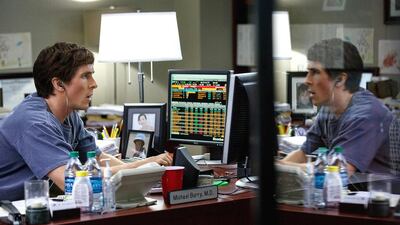Current debates about stock valuations resemble the arcane meditations of medieval monks. But the real drivers are more mundane. Traders, weaned on tales of financial daring like The Big Short, want to be the ones who profit from the next crash. The problem is that it may be easier to predict the crash than to profit from it.
To make money from a decline in prices, you can sell short, buy put options, or switch from risky to defensive assets. Success requires an accurate estimation of the timing and amplitude of any shift in valuations. You need to forecast the asset classes and markets that will be affected as well as vectors of contagion. You must anticipate whether the adjustment is in prices or in second-order elements, such as volatility or correlation.
To make large returns, the market move must be amplified by leverage. George Soros's Quantum Fund made $1 billion in 1992 by shorting the British pound, using leveraged trading to augment the rate of return. In 2008, the funds that made stellar returns from subprime losses used derivatives, primarily credit-default swaps. The payoff relative to the premium or cost of the derivatives enhanced the gains in percentage terms. Multiple layers of leverage within the securities themselves further increased returns.
But leverage makes it harder to maintain a position designed to take advantage of anticipated market changes. An inability to meet margin calls or exposure could result in premature closeout. Counterparties may be unable to meet their obligations. Many of the traders who anticipated the 2008 crisis early were not able to benefit because they were forced to close out positions prematurely due to margin calls. Others benefited only because policy makers bailed out too-big-to-fail counterparties.
_____
Read more:
What to buy when the stock market crashes
The ultimate buy and hold stocks portfolio - if you are brave enough
_____
Even if the forecast is correct, moreover, the outcome depends on the starting position. If a position is taken against existing risky assets, it can only preserve the value of the portfolio if the hedges work as intended. Leaving aside the pleasure of outperforming competitors, there's no accretion to value, which must also be adjusted for the costs of these hedges.
Selling risky assets and investing defensively comes with challenges too. It entails purchasing "safe" assets, non-market correlated hedge funds promising protection against a downturn, or value-based investments with a large margin of safety.
In 2008, investors gained from holdings of government bonds, but primarily from appreciation due to central bank buying. In a future crisis, government bonds may not be a risk-free haven if the credit quality of sovereigns deteriorates. There is also a risk of loss from interest rate and credit margin changes where the security must be sold before final maturity.
Some funds avoided large losses in 2008 by lowering net exposure via hedges, but few provided large returns. Berkshire Hathaway, a talismanic value investor, lost about 50 per cent of its value between December 2007 and early 2009.
The long-term success of moving to safe assets relies on any downturn being temporary. It assumes that prices will ultimately revert to true values. This allows purchases of distressed assets, exploitation of mispriced individual assets, or providing liquidity or capital on advantageous terms during periods of market disruption.
Berkshire eventually benefited from the crisis by using its ample liquidity to purchase assets at attractive valuations and provide capital to vulnerable entities (including Goldman Sachs Group), while selling long-dated equity options when market values were low.
The difficulty of capturing gains from a crash highlights a paradox. No money is ever really made in financial markets. As each gain must be offset by a loss, money is merely transferred between participants or, as Michael Douglas's character in Wall Street suggests, from "one perception to another".
The only true profits come from the cash earnings of operating enterprises rather than increases or decreases in the value of financial claims on these profits. But real businesses are less exciting than financial trading - and therefore misunderstood in times that value high drama over real returns.
Satyajit Das is a former banker whose latest book is A Banquet of Consequences

